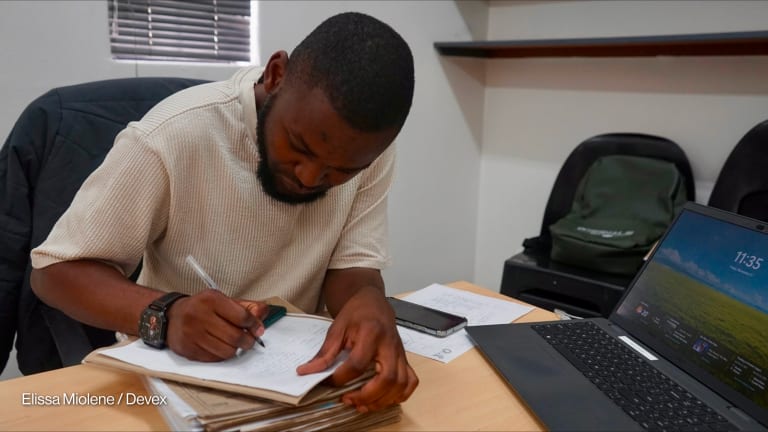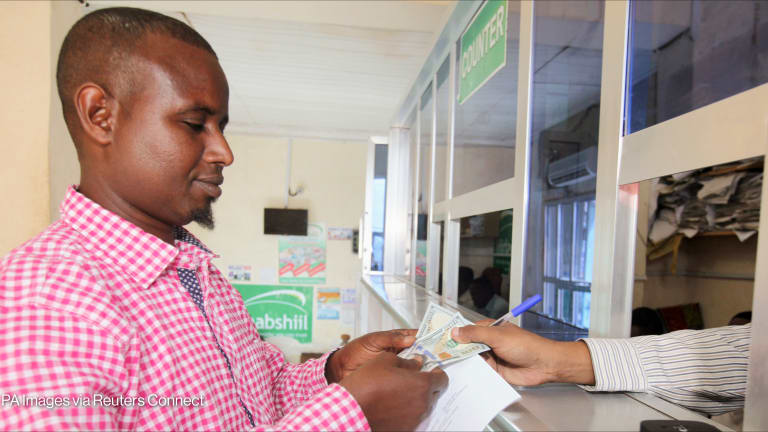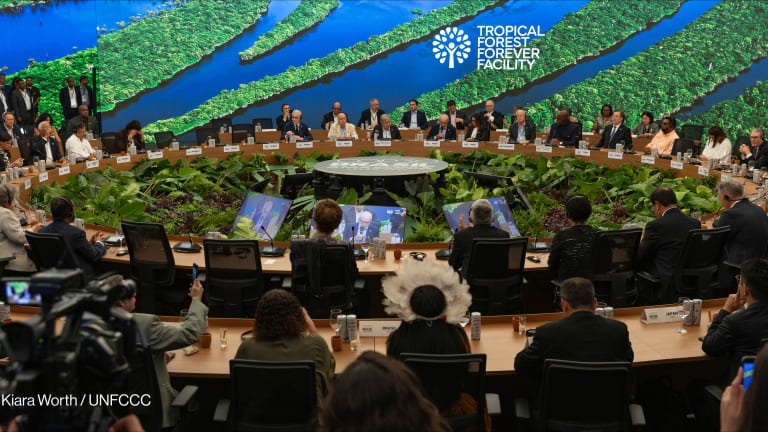Multimillion-dollar fund aims to fill Africa’s agribusiness financing gap
FASA is a “fund of funds” — one that’s being supported by governments in Norway, South Korea, the United Kingdom, and the United States.
The doors of the FASA fund have finally opened — and now, the world’s newest “fund of funds” is ready to invest. FASA stands for Financing for Agricultural SMEs in Africa, with SMEs referring to small and medium-sized enterprises. It is financed by the United States, Norway, the United Kingdom, South Korea, and the Small Foundation, a Dublin-based philanthropy. Despite producing 80% of Africa’s locally consumed food — and generating a quarter of the continent’s rural employment — agri-SMEs face an estimated $100 billion lending gap, according to an analysis by the Mastercard Foundation and ISF Advisors. By funneling nearly $80 million to investment firms focused on those businesses, FASA aims to unlock financing for 1,000 SMEs on the African continent, derisking future investments by providing subordinated capital to each fund. That capital, which will come in the form of equity or debt, can act as a cushion for future stakeholders — and absorb any losses a business faces before senior investors are affected. And over the next 10 years, those behind FASA hope it can support not just those thousand businesses, but the 70,000 jobs and over 1 million smallholder farmers they support. “We think it's a pretty creative way for us to crowd in more money, be innovative, and use donor dollars to be really catalytic,” said Ann Vaughn, a deputy assistant administrator at the U.S. Agency for International Development. “There’s definitely a need in the marketplace to try to solve the problem that SMEs face across Africa, where there’s just not good financing — and sufficient financing — for them.” FASA was first announced in 2023 by USAID and Norway, with each committing $35 million toward the fund. In the year since, the two countries have been working to both pull more donors into the mix and to find a fund manager to steer the FASA ship forward. Last week, those updates were announced at the Norwegian Embassy in Washington, D.C. Investisseurs et Partenaires, or I&P, an investment firm focused on African agribusiness, will now be managing the fund’s investments. The United Kingdom, South Korea, and the Small Foundation will each contribute cash of their own — £7 million (about $9 million), $1.25 million, and $300,000, respectively, according to USAID. FASA’s goal is to reach $200 million in donor contributions. The first round of investments are expected to be approved and announced early next year. “It’s a solution to not only saving lives and feeding people — it’s a huge development opportunity,” Anne Beathe Tvinnereim, Norway’s minister of international development, told Devex. While those like Norway and USAID will provide general oversight for FASA, the fund will largely be in the hands of I&P, explained Songbae Lee, the agricultural finance team lead at USAID’s Bureau of Resilience, Environment, and Food Security. “I&P will make investments into other investment funds, and then over time, that money will be repaid to FASA. Then, I&P will redeploy that money,” Lee told Devex. “So this will be a recycling, evergreen fund.” Still, I&P’s role comes after USAID and Norway have already “drawn the box” around what to fund, Lee explained, with specific criteria dictating which funds can receive FASA investment. For example, investment funds must have at least one investment professional based in Africa, and funding aperture between $50,000 to $5 million for each investment, and at least a 30% exposure to African agri-SMEs in their existing portfolio. “There are so many ways that we can use a little bit of [official development assistance] to leverage private money, and get more value for that money,” said Tvinnereim. “We need to take some risks. But it’s money well spent.” Update, Oct. 31, 2024: This article has been updated to correctly reflect the contribution of the Small Foundation. Update, Nov. 1, 2024: This article has been updated to amend the headline and clarify FASA’s investment figure.
The doors of the FASA fund have finally opened — and now, the world’s newest “fund of funds” is ready to invest.
FASA stands for Financing for Agricultural SMEs in Africa, with SMEs referring to small and medium-sized enterprises. It is financed by the United States, Norway, the United Kingdom, South Korea, and the Small Foundation, a Dublin-based philanthropy.
Despite producing 80% of Africa’s locally consumed food — and generating a quarter of the continent’s rural employment — agri-SMEs face an estimated $100 billion lending gap, according to an analysis by the Mastercard Foundation and ISF Advisors.
This story is forDevex Promembers
Unlock this story now with a 15-day free trial of Devex Pro.
With a Devex Pro subscription you'll get access to deeper analysis and exclusive insights from our reporters and analysts.
Start my free trialRequest a group subscription Printing articles to share with others is a breach of our terms and conditions and copyright policy. Please use the sharing options on the left side of the article. Devex Pro members may share up to 10 articles per month using the Pro share tool ( ).
Elissa Miolene reports on USAID and the U.S. government at Devex. She previously covered education at The San Jose Mercury News, and has written for outlets like The Wall Street Journal, San Francisco Chronicle, Washingtonian magazine, among others. Before shifting to journalism, Elissa led communications for humanitarian agencies in the United States, East Africa, and South Asia.








